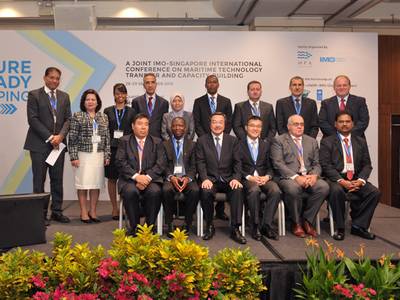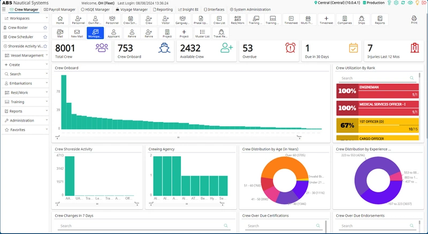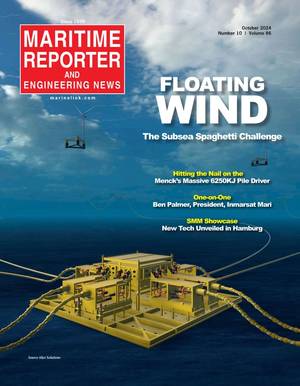The Global Maritime Energy Efficiency Partnerships Project (GloMEEP), which aims to support increased uptake and implementation of energy-efficiency measures for shipping, was formally launched on Monday, September 28, in Singapore, at the IMO-Singapore Future-Ready Shipping 2015 conference.
This Global Environment Facility (GEF)/United Nations Development Program (UNDP)/IMO project, formally designated “Transforming the Global Maritime Transport Industry towards a Low Carbon Future through Improved Energy Efficiency”, will focus in particular on building capacity to implement technical and operational measures in developing countries, where shipping is increasingly concentrated.
Funding for the two-year project was agreed in July. IMO will execute the project, which marks the beginning of a new blueprint for creating global, regional and national partnerships to build the capacity to address maritime energy efficiency and for countries to mainstream this issue within their own development policies, programs and dialogues.
Attending the GloMEEP launch were representatives of the lead pilot countries for the project: Argentina, China, Georgia, India, Jamaica, Malaysia, Morocco, Panama, Philippines and South Africa. The lead pilot countries will be supported in taking a fast-track approach to pursuing relevant legal, policy and institutional reforms, driving national and regional government action and industry innovation to support the effective implementation of IMO’s energy efficiency requirements.
The project inception meeting and global project task force meeting will take place in Singapore on September 30 and October 1.
Speaking at the project launch, IMO Secretary-General Koji Sekimizu expressed his appreciation to Dr. Naoko Ishii, CEO of the GEF and Dr. Andrew Hudson from UNDP, for their support for the project. Dr. Ishii and Dr. Hudson also spoke at the launch, via video message.
“I recall my meeting with Dr Naoko Ishii, CEO of the Global Environment Facility, at the 2013 Davos World Economic Forum, and a subsequent meeting we had at her office in Washington, during which we shared our common vision on the need to transform the maritime transport industry towards a low-carbon future, through improved energy efficiency under the IMO measures established by the 2011 amendments to the MARPOL Convention. So I am particularly pleased to be able to formally launch this project today,” Sekimizu said.
Sekimizu also thanked Andrew Tan, Chief Executive of the Maritime and Port Authority of Singapore, an official strategic partner for the project and host of the Future-Ready Shipping 2015 conference. The conference has gathered some 200 delegates to discuss ways forward in encouraging the uptake of energy-efficient ship technologies.














